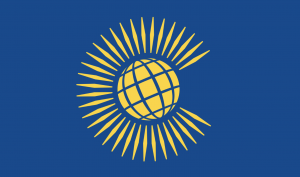The Commonwealth: A Force for Good!
As part of the Commonwealth Day celebration on 12th March, we represented Warrington Chamber at the “How to Trade with the Commonwealth” event at Chester Racecourse, organised by both Cheshire & Warrington and Liverpool City Region Local Enterprise Partnerships. The event was also an opportunity to launch the combined Merseyside and Cheshire Commonwealth Association and included a visit by Prince Edward, Earl of Wessex. With companies always looking for new international trade opportunities, over 300 delegates attended to hear presentations from Commonwealth Trade Commissioners, Export Support Organisations and local businesses keen to tell of their sales experience with Commonwealth markets.
So let’s just recap on the Commonwealth countries and what they offer in terms of trade opportunities, as, with the Gold Coast Commonwealth Games set to start on 4th April, it would be good to know more than the weightlifting prowess of Nauru and Tuvalu or recall the memorable rugby sevens debut performance by Niue (population 1,190) at the 2002 Manchester Commonwealth Games.
There are currently 53 members of the Commonwealth (this includes The Gambia who rejoined in February this year) representing 2.4 billion citizens and 20% of global trade. UK-Commonwealth trade reached a peak of US$ 120 billion in 2012, just before the global trade slowdown. Some Commonwealth countries have a higher reliance on trade with the UK than others, for example, 56% of Botswana’s exports are to the UK, mainly beef and diamonds; almost all of St Lucia’s banana exports are destined for the UK and Belize and Fiji fulfil the majority of our sweet tooth demands for sugar. From a UK perspective, the Office for National Statistics gives our top five Commonwealth export markets in 2016 as Australia (£8.6bn), Canada (£8.3bn) Singapore (£7.2bn), India (£5.7bn) and South Africa (£4.3bn). A collective “Other Africa” (not North) actually comes in above Singapore at £7.6bn and a good proportion of this will be Commonwealth countries, such as Nigeria (£2.1bn). A trade surplus for the UK is derived from all of these apart from India.
So why else do they say we should focus on increasing trade with the Commonwealth? It isn’t a formal trading bloc and we can’t just expect to sell more because we are a Commonwealth member. Or can we? Standard economic models look at the propensity of countries to trade with each other based on size of economy, distance apart, common borders and language etc. Looking at this voluntary association of 53 countries spanning the globe, a large question mark is thus bound to appear in your mind. However, a 2015 study shows that, when bilateral partners are both Commonwealth members, they tend to trade, on average, 20 per cent more and generate 10 per cent more foreign direct investment flows. This so-called “Commonwealth Advantage” implies bilateral trading costs between Commonwealth partners are, on average, 19 percent lower than those in other country pairings. Add into the equation historic ties, long-established trading relations, similar legal system, predominant use of English for communication with foreigners, not forgetting the strong diaspora communities, then perhaps there is a case to look at currently under-utilised trade potential with Commonwealth countries.

